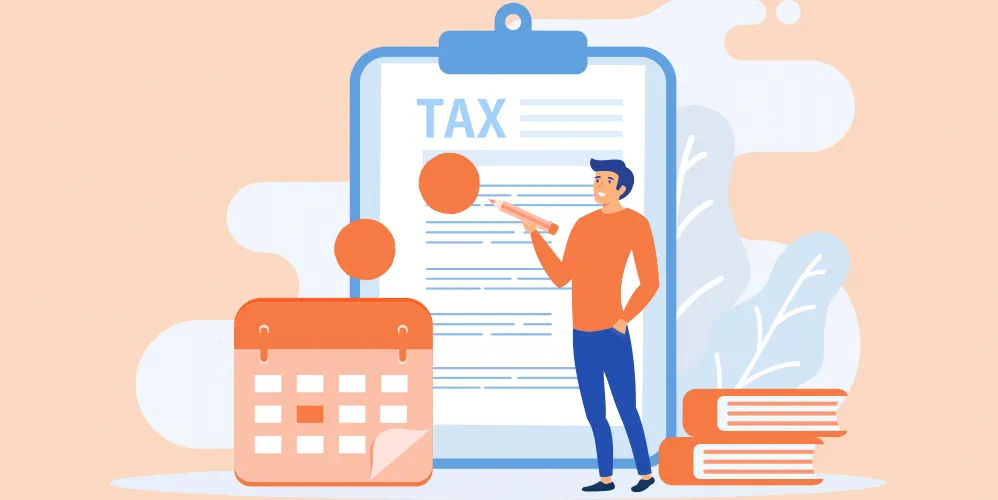
NPS Returns - Everything You Need to Know
04 Jan 2023

Table of Content
Introduction
Every person wants to live with financial liberty without compromising their standard of living during the advancing years and it is possible with a pension scheme. With a mission to provide social security to every old age Indian citizen, the Government of India started the National Pension System that allows one to voluntarily invest, accumulate savings and get a lump sum amount in a form of regular income through an annuity plan on retirement.
What is NPS?
Launched on 1st January 2004 under the Pension Fund Regulatory and Development Authority (PFRDA) purview, The National Pension System (NPS) provides retirement income to all Indian citizens. NPS scheme aims to inculcate the habit of saving for retirement amongst the citizens. The NPS scheme provides financial security and stability during old age when people don't have a regular source of income.
Features of NPS
- The subscriber of NPS is allotted a unique Permanent Retirement Account Number (PRAN).
- This unique PRAN can be used by NPS subscribers from any location in India.
- PRAN provides access to two kinds of NPS accounts:
- Tier I Account: A non-withdrawable account meant for savings for retirement.
- Tier II Account: A voluntary savings facility where the subscriber is free to withdraw savings from this account whenever the NPS subscriber requires it.
Tier – I Tier – II Individual Pension Account Optional Account-Require on active Tier-I Withdrawal as per rules/regulations only Unrestricted withdrawals Min. Contribution to open Rs. 500 Min. Contribution to open Rs. 1000 Min. Contribution per year Rs. 1000 Min. Contribution Rs. 250 Tax benefits are available No tax benefits on contribution/gains
What Is the Return on NPS?
NPS Returns are delivered by NPS Pension Fund Managers. As an NPS subscriber, you can select one of 8 Pension Fund Managers (PFMs) in the NPS. You can also select the split between the four NPS asset classes – Equity, Corporate Bonds, Government Bonds, and Alternate Assets. The NPS returns depend on the asset allocation and the selected Pension Fund Managers. Since the NPS scheme is a long-term investment, the earlier you start contributing to the NPS, the longer your money will grow, giving you good returns. NPS returns are much higher than other traditional tax-saving investments.
Must Read - Tax Benefits Under NPS One Can Avail of
Are NPS Returns Fixed?
The returns on NPS investments are usually affected by market fluctuations and are therefore not fixed. There may be many other reasons such as:
- The NPS investment depends on markets as NPS subscribers invest in equities and debts.
- The amount of return depends on the NPS performance enabling the NPS subscriber to wisely choose before fixating on a particular fund manager.
- And finally, a desirable manager allocates an NPS subscriber’s assets across the market precisely so that the NPS subscriber gets high NPS returns.
Checking NPS Fund Performance
Keeping a check on your NPS fund performance is important because an NPS fund’s performance will give you an insight into how the NPS fund performed in various markets in the past.
Must Read - Top 5 tax saving investment options
Frequently Asked Questions
- Is there a guaranteed return on NPS?
Since your NPS investment is fully dependent on the scheme and the Pension Fund Managers you have chosen there are no fixed returns on NPS.
- Can I calculate my provisional pension on maturity beforehand?
Yes. You can always calculate your provisional pension on maturity beforehand with the help of an online NPS pension calculator that calculates your estimated lump sum pension amount.
- Is there any tax on NPS returns?
No, there is no tax on your NPS returns unless you opt for a premature exit. If you wish to withdraw your NPS pension before the maturity period, you will be liable to withdraw 20% of the corpus, which is taxable as per the government tax slab rate.
Popular Articles
Tag Clouds
Related Articles










-
Disclaimer
The contents of this article/infographic/picture/video are meant solely for information purposes and do not necessarily reflect the views of Bank of Baroda. The contents are generic in nature and for informational purposes only. It is not a substitute for specific advice in your own circumstances. Bank of Baroda and/ or its Affiliates and its subsidiaries make no representation as to the accuracy; completeness or reliability of any information contained herein or otherwise provided and hereby disclaim any liability with regard to the same. The information is subject to updation, completion, revision, verification and amendment and the same may change materially. The information is not intended for distribution or use by any person in any jurisdiction where such distribution or use would be contrary to law or regulation or would subject Bank of Baroda or its affiliates to any licensing or registration requirements. Bank of Baroda shall not be responsible for any direct/indirect loss or liability incurred by the reader for taking any financial decisions based on the contents and information mentioned. Please consult your financial advisor before making any financial decision.
Premature Withdrawal of Fixed Deposit: Penalty Charges & Alternative Options
Most savers like to earn some income passively over and above their regular income flow. Fixed deposits offer them a diversification route for investing their savings. When a saver invests in a fixed deposit, they earn a guaranteed income over a fixed term of the investment. Fixed deposits, also known as term deposits, are suitable for both; working professionals and retired senior citizens. Fixed deposits range in tenor from 7 days and go all the way up to 10 years. The interest rate offered by different banks and financial institutions varies according to the tenor as well as the credit rating of the bank. Each bank has its own terms and conditions for offering fixed deposits to the members of the public.
Know Why do FD Interest Rates Changes Frequently
Fixed deposits are the favourite investment instruments for those who prefer assured returns and low-risk investments offered by banks. The interest rates in fixed deposits keep changing. We will help you understand why this happens and how this affect can your savings.

